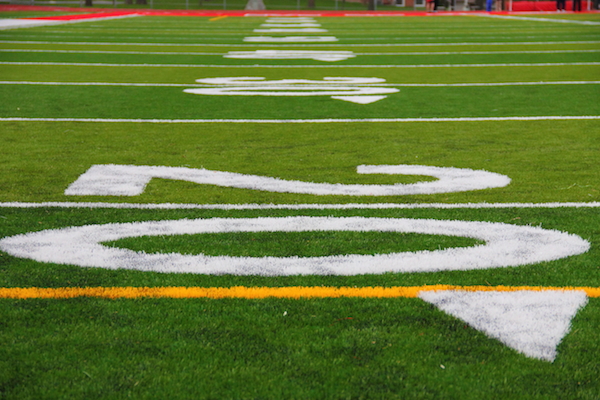The sports blog Deadspin published an investigative story recently by Diana Moscovitz detailing the assault case against National Football League (NFL) player Greg Hardy. It’s a thoroughly dispiriting piece which describes and confirms many of our worst assumptions about human nature and the casual ease with which rich and powerful men in our society take advantage of their privileged positions. In case you haven’t read the piece, here’s roughly what we know:
- Greg Hardy physically assaulted a woman, Nicole Holder, who he had been in an on-again, off-again relationship with for two years
- Police were called onto the scene by two separate 911 calls, one from a witness, who was concerned about Holder’s well-being, and one from Hardy who claimed that Holder was assaulting him.
- When the police arrived, they interviewed the people who were there, including Holder, Hardy, the witness who called 911, and other witnesses. They took photos of Holder’s injuries and also those of Hardy’s. These photos are available on Deadpin as part of their article.
- The police eventually arrested Hardy and in 2014 he was convicted of assault.
- Hardy later appealed the verdict and, largely because Holder refused to take part in the appeal process, eventually had his conviction overturned. The prosecutors suggested that Hardy had reached an undisclosed civil settlement with Holder in return for her silence in court.
- Since then, Hardy has been reinstated to the NFL and signed as a free agent by the Dallas Cowboys. He served a four game suspension after his original 10 game sentence was reduced. He’s back on the field and playing well.
As a sports fan and as someone who spends a lot of time writing about sports for an audience of mostly non-sports fans, in addition to being totally disgusted by reading Deadspin’s article today, I found myself automatically thinking about what a non-sports fan might think about the article. The single biggest question that I imagined non-sports fans asking was, “how can you continue to watch football after reading a story like that?” My answer, and I assure you, I am not being glib at all about this, is that I am proud of sports today.
It’s good that sports are covered so vociferously by the sports media that stories like this are published. Players, coaches, and owners should be well aware of the fact by now that they can’t do something as awful as this and get away with it for long without it becoming known. Not every industry can say this. Take the restaurant industry, for example, which is just beginning to struggle with this issue in the workplace. What part of American life is more closely scrutinized than sports? Maybe politics or the music/movie/celebrity industry can rival sports, but most cannot. The close coverage of sports benefits society as a whole by surfacing a lot of issues which I believe are present in every walk of life.
- Money and celebrity equate to great social power which can warp the way society treats a person, even to the extent of changing how police and the court system handle an illegal act.
- Many domestic assault victims are vulnerable to private and public pressure that work against the punishment of their assaulter.
- Many people are quick to disbelieve or blame a domestic assault victim and equally quick to excuse or forgive the assaulter. This is especially true in cases where the legal system has failed in convicting the assaulter, or even, as in this case, convicted him but lost on appeal.
- The extent to which someone is forgiven or excused from having committed assault is affected by their real or perceived value to some element of society.
We need to find ways to break these patterns. How can we strengthen our ethical mores so that we don’t compromise our ethics, even for people who we venerate? How can we particularly empower our legal system to be invulnerable to the appeal of the rich and powerful? How can we ease or reverse the response to domestic assault victims so that we support their recovery and the punishment of their assaulters? How can we convince or force companies to hold employees to a higher standard than that of a flawed legal system without creating modern Red Scares or witch hunts? How can we apply forgiveness without denial and rehabilitate without letting people get away with crimes? How can we do this evenly across society?
We as a society need to answer all these questions together and, while I doubt that sports as a subculture is currently equipped to lead that movement, I am grateful to sports journalists who are at least bringing these problems to the surface persistently and eloquently.

